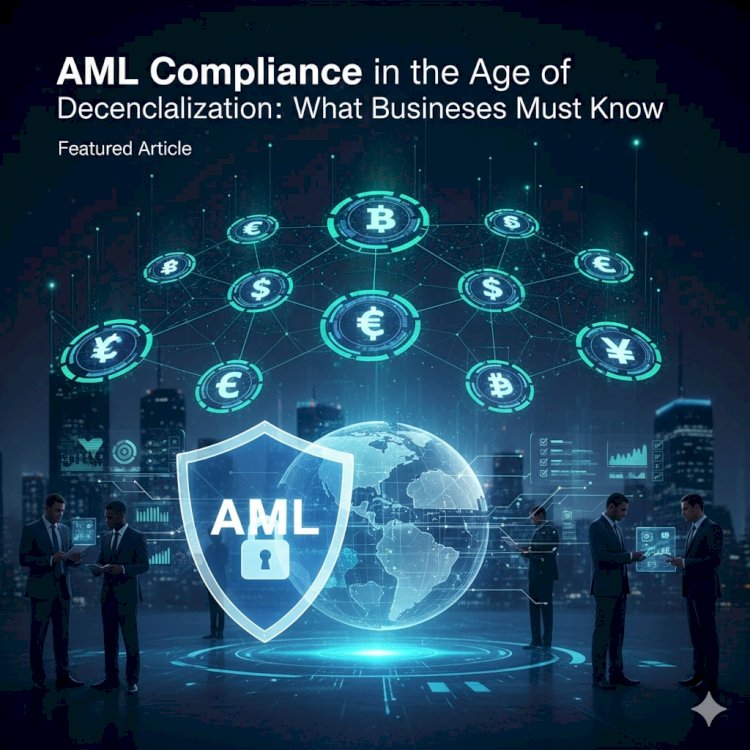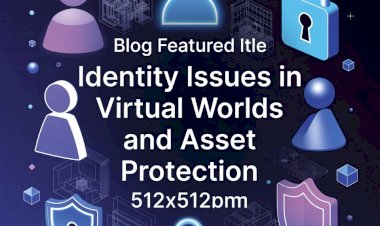AML Compliance in the Age of Decentralization: What Businesses Must Know

AML Compliance in the Age of Decentralization: What Businesses Must Know
By Dr. Pooyan Ghamari, Swiss Economist and Visionary
The rise of decentralized finance has shattered traditional assumptions about money movement, identity, and control. Where once banks stood as gatekeepers enforcing anti-money laundering (AML) protocols, today anyone with an internet connection can transfer value across borders in seconds—often without revealing their identity. This democratization of finance is exhilarating, but it has thrust businesses into a regulatory minefield. As a Swiss economist who has advised financial institutions on compliance frameworks for over two decades, I have witnessed the collision between innovation and oversight firsthand. The message is clear: decentralization does not exempt organizations from AML obligations. It redefines them.
This article distills the essential knowledge businesses need to operate lawfully in 2025’s decentralized landscape. We examine evolving regulatory expectations, practical compliance strategies, and emerging technologies that bridge the gap between privacy and accountability. The stakes are high—fines now routinely exceed hundreds of millions, and reputational damage can be fatal. Yet with disciplined adaptation, companies can turn compliance from a burden into a competitive advantage.
The New AML Battlefield: From Centralized to Distributed Risk
Traditional AML programs relied on centralized choke points. Banks froze suspicious accounts. Payment processors flagged anomalous patterns. Regulators audited paper trails. Decentralization dismantles these controls. A user in Singapore can swap stablecoins for privacy coins on a non-custodial exchange, route funds through a cross-chain bridge, and withdraw fiat in Argentina—all without ever submitting identification. The transaction leaves fragmented traces across dozens of blockchains, each with different transparency levels.
Regulators have responded aggressively. The Financial Action Task Force (FATF) updated its guidance in 2021 to classify most decentralized applications as Virtual Asset Service Providers (VASPs) when they facilitate transfers for others. By 2025, over 70 jurisdictions enforce the Travel Rule, requiring VASPs to exchange originator and beneficiary information for transactions above $1,000. Failure triggers license revocation, market exclusion, or worse.
Yet enforcement remains uneven. Jurisdictions like Switzerland and Singapore offer clear licensing paths for crypto businesses, while others impose outright bans. The European Union’s Markets in Crypto-Assets (MiCA) regulation, fully effective since mid-2024, mandates comprehensive AML programs for all crypto-asset service providers operating in the bloc. Non-compliance carries penalties up to 8% of global turnover—numbers that dwarf even GDPR fines.
Core Compliance Obligations for Decentralized Businesses
Every organization touching cryptocurrency must now implement five foundational AML components, regardless of whether they custody assets or merely provide software.
- Risk-Based Customer Due Diligence (CDD) Identify users proportionally to risk. Low-value, low-frequency interactions may warrant simplified checks. High-volume traders or privacy-coin converters trigger enhanced due diligence, including source-of-funds verification. Automated tools now scan wallet histories for exposure to known illicit addresses, flagging clusters associated with mixers or darknet markets.
- Transaction Monitoring in Real Time Static rules are obsolete. Machine learning models analyze behavioral patterns—sudden velocity spikes, round-number transfers, or rapid cross-chain hops. These systems must operate across Layer-1 and Layer-2 networks, integrating data from oracles and bridge protocols. False positives remain a challenge, but tolerance thresholds have tightened: unexplained $50,000 flows now demand explanation.
- Travel Rule Implementation When transferring virtual assets between VASPs, transmit full originator and beneficiary data securely. Protocols like TRISA and OpenVASP enable interoperability, but adoption lags among smaller exchanges. Businesses delaying integration risk regulatory blacklisting.
- Sanctions Screening Screen every wallet address against OFAC, EU, and UN lists in real time. Privacy coins complicate this—Monero transactions reveal no addresses—but metadata from entry and exit points often suffices. Failure to block designated entities invites secondary sanctions.
- Record-Keeping and Reporting Retain transaction records for five to ten years, depending on jurisdiction. Suspicious Activity Reports (SARs) must be filed within 24–48 hours of detection. Decentralized exchanges once claimed immunity; regulators now pierce the veil, holding developers and governance token holders accountable under aiding-and-abetting theories.
Navigating DeFi’s Unique Compliance Challenges
Decentralized protocols present acute difficulties. Smart contracts execute immutably—once deployed, code cannot be altered to add KYC checks. Governance tokens distribute control, blurring lines of responsibility. Yet courts increasingly assign liability to foundational teams or dominant token holders. The 2024 CFTC settlement with a major DEX operator established precedent: facilitating unregulated derivatives trading without AML controls violates the Bank Secrecy Act.
Forward-thinking projects embed compliance at the protocol layer. Whitelist-based stablecoins restrict transfers to verified addresses. Zero-knowledge identity systems allow users to prove attributes—age, residency, non-sanctioned status—without revealing underlying data. Bridges now incorporate optional Travel Rule messaging, activated when counterparties signal VASP status.
Building a Future-Proof AML Program
Compliance need not stifle innovation. The most successful organizations treat AML as product infrastructure.
- Layered Intelligence: Combine on-chain analytics with off-chain intelligence. Wallet clustering reveals ownership patterns; IP geolocation flags VPN usage; device fingerprinting detects account sharing.
- Privacy-Preserving Verification: Adopt selective disclosure frameworks. Users prove compliance credentials via zero-knowledge proofs, satisfying regulators without exposing personal data.
- Regulatory Sandboxes: Engage with progressive supervisors—Switzerland’s FINMA, Singapore’s MAS, Dubai’s VARA—to test novel approaches under controlled conditions.
- Staff Training: AML officers must understand cryptography, smart contract mechanics, and cross-chain flows. Annual certifications are becoming mandatory.
- Auditability by Design: Immutable logs of compliance decisions, stored on permissioned sidechains, simplify regulatory examinations.
The Competitive Edge of Ethical Compliance
In 2025, robust AML is no longer a cost center—it is a market signal. Institutional investors demand audited compliance programs before allocating capital. Insurance underwriters slash premiums for protocols with proven controls. Retail users gravitate toward platforms that balance privacy with safety.
My ALand platform exemplifies this philosophy. We tokenize high-value assets—real estate, precious metals—with embedded compliance modules. Investors retain privacy through encrypted holdings, yet regulators access audit trails via cryptographic commitments. The result: frictionless onboarding, zero reportable incidents, and rapid scaling across jurisdictions.
Conclusion: Compliance as the New Currency
Decentralization has not eliminated money laundering—it has globalized and accelerated it. Businesses that treat AML as optional will find markets closed, licenses revoked, and assets frozen. Those that embrace it as core infrastructure will lead the next financial era.
The path forward requires neither surrender to surveillance nor defiance of law. It demands intelligent architecture: systems that preserve user autonomy while satisfying legitimate oversight. Switzerland’s banking secrecy evolved from absolute opacity to conditional transparency; decentralized finance must follow suit.
Regulators, innovators, and users share one goal—trustworthy markets. AML compliance, properly implemented, is the bridge. Cross it wisely, and the decentralized future becomes not a regulatory nightmare, but a golden opportunity.
Dr. Pooyan Ghamari is a Swiss economist, AI specialist, and founder of ALand, pioneering compliant asset tokenization in real estate and precious metals.

 content-team
content-team 


















